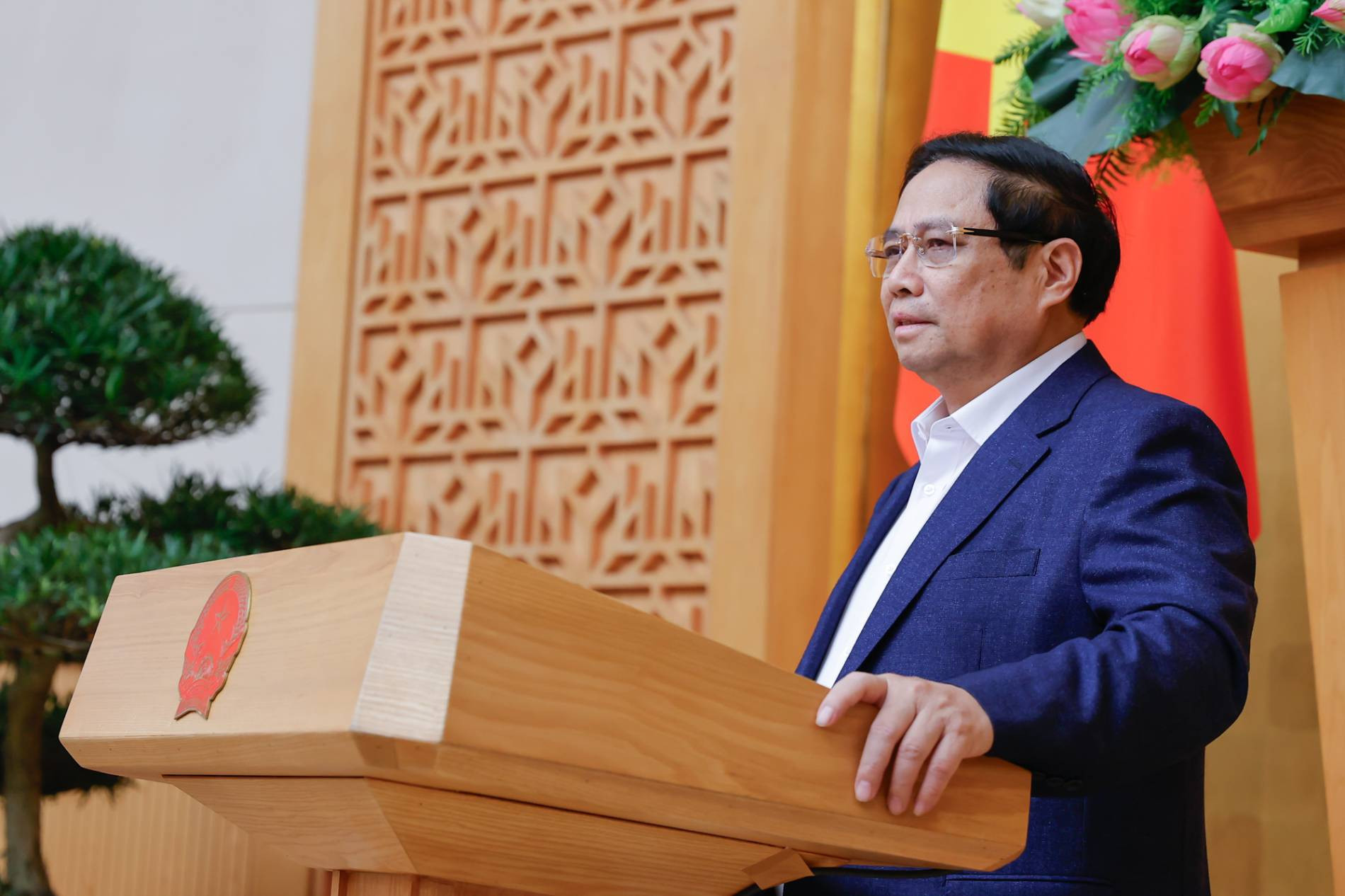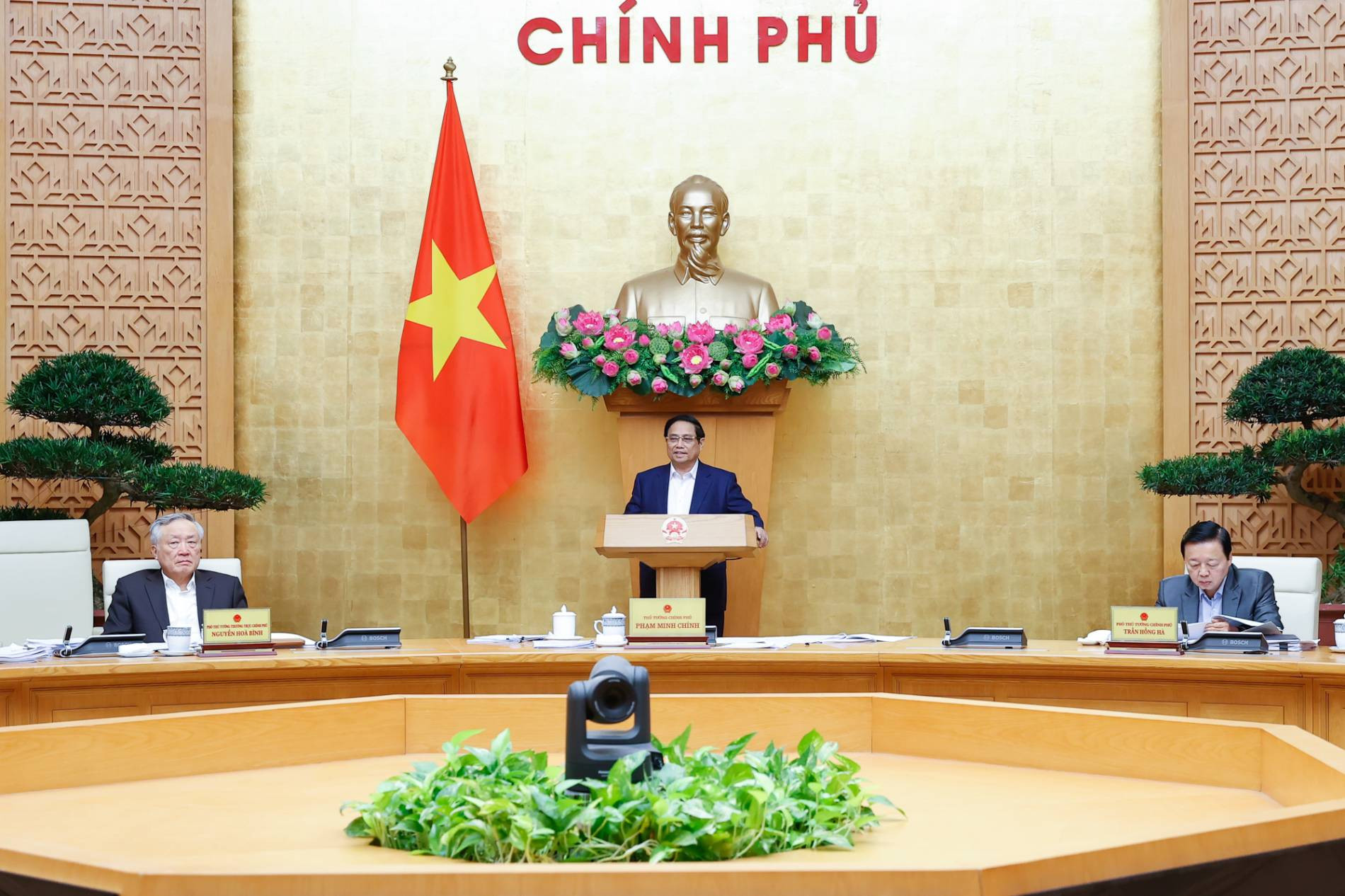On December 4, Prime Minister Pham Minh Chinh presided over a specialized Government meeting on legislative development for November 2024, addressing several key topics.
The meeting was attended by members of the Politburo, Central Committee of the Communist Party, Deputy Prime Ministers, members of the Government, and leaders of ministries and agencies.

During the session, the Government reviewed and provided feedback on six proposed legislative amendments:
Revisions to the Law on the Organization of the Government
Revisions to the Law on the Organization of Local Government
Amendments to the Atomic Energy Law
Revisions to the Law on Execution of Criminal Judgments
Law on Detention, Temporary Custody, and Restriction of Movement
Amendments to the Law on Economical and Efficient Use of Energy
Draft Ordinance on the Management and Protection of the Ho Chi Minh Mausoleum Monument Area
Concluding the session, Prime Minister Pham Minh Chinh emphasized the urgency and diligence displayed throughout the meeting.
He praised ministries including Defense, Industry and Trade, Science and Technology, Public Security, and Home Affairs for their meticulous preparation and thorough responses to feedback from the Government Standing Committee and other members.
The Prime Minister urged ministers to seriously consider input from the Government and other participants to refine the legislative proposals and ordinances.
The Ministry of Justice was tasked with coordinating efforts to identify and address legal challenges, incorporating public feedback through the Government’s online portal.
Deputy Prime Ministers were instructed to directly oversee the refinement of the seven critical legislative items, while the Government Office was assigned to integrate feedback into a draft resolution for unified implementation.

Reforming legislative practices
The Prime Minister called for a paradigm shift in legislative development to ensure regulations both enable effective governance and foster an environment conducive to resource mobilization for national development. He stressed that laws should serve as frameworks, setting principles while delegating specifics to government ministries and agencies to address evolving realities.
"Legislation must help achieve the twin centennial goals for national development and ensure double-digit economic growth in the coming years," he noted.
Additionally, he called for: Elimination of bureaucratic "ask-and-give" mechanisms; Strict anti-corruption and anti-nepotism measures in legislative processes; Safeguarding the legitimate rights and interests of citizens and businesses; Avoiding the criminalization of civil and economic relations.
The Prime Minister emphasized cutting administrative red tape, lowering compliance costs, and leveraging technology to reduce direct contact, minimizing petty corruption.
Clear, concise, and enforceable laws
The Prime Minister stressed that legal texts must be clear, concise, and actionable, with well-defined responsibilities and powers. Greater decentralization and resource allocation were encouraged, alongside enhanced oversight and post-legislative reviews.
Drafting agencies were instructed to continue seeking input from stakeholders, including impacted groups, experts, and international counterparts, while ensuring effective communication on complex or novel policy issues.
He also highlighted the urgency of implementing laws and resolutions recently passed by the National Assembly. Ministries and local authorities were directed to promptly draft, propose, and issue detailed regulations. The Prime Minister urged the swift revision of the Law on Promulgation of Legal Documents to align it with practical needs while avoiding unnecessary formalities.
Calling institutional reform the "breakthrough of breakthroughs" and a "key driver of development," the Prime Minister urged ministers to personally oversee legislative development. He also called for enhanced inter-ministerial collaboration, prioritizing institutional reform and dedicating resources to improving legal frameworks.
VGP